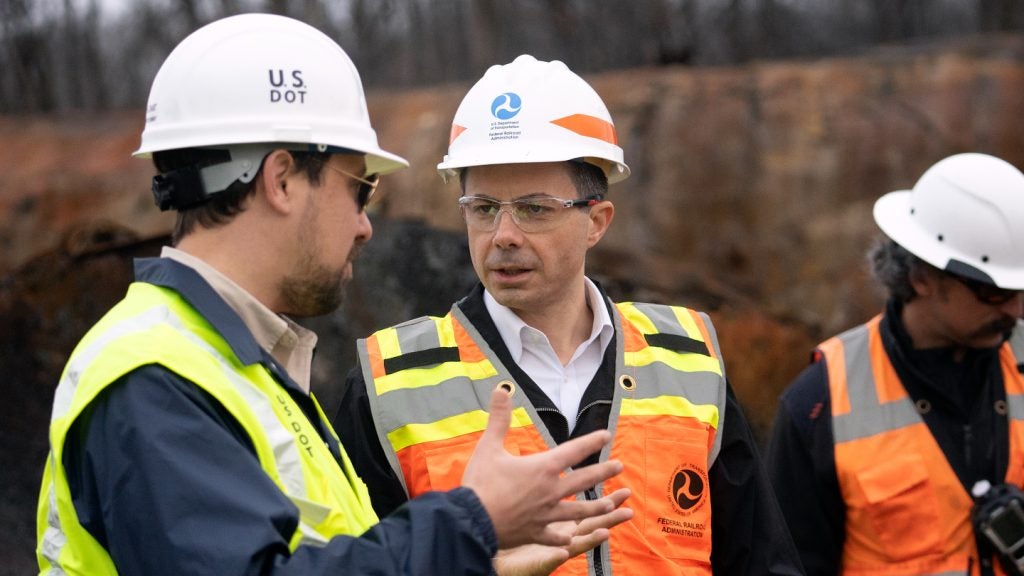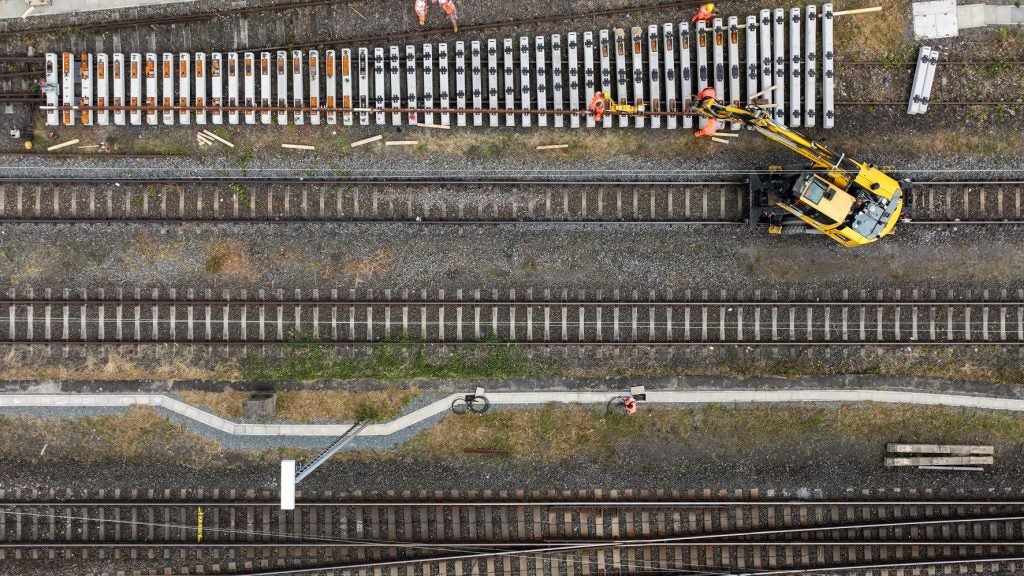
Biofuel is a renewable alternative to petroleum diesel that is clean-burning, improving air quality. The use of renewable fuel provides energy security as well as safety benefits.
Pascal Schweitzer, president of global freight services at transport technology firm Wabtec, says: “Our customers are making ESG their top priority, and we are proud to partner with them to develop the comprehensive toolbox needed to achieve their emission reduction targets.
“We are looking at all solutions to enable cleaner trains: engine and locomotive upgrades and retrofits, digital solutions, batteries and hydrogen fuel cells, next-generation HVAC, and braking systems.”
Last year, the North American railroad company BNSF conducted a pilot with a Wabtec battery-electric locomotive, which was in commercial service between Barstow and Stockton in California, US. This was the first battery-electric freight locomotive in North America.
The pilot demonstrated an 11% reduction in fuel consumption and greenhouse gas emissions when compared with the standard diesel units that operated along the same route.
A new blend for sustainability
How well do you really know your competitors?
Access the most comprehensive Company Profiles on the market, powered by GlobalData. Save hours of research. Gain competitive edge.

Thank you!
Your download email will arrive shortly
Not ready to buy yet? Download a free sample
We are confident about the unique quality of our Company Profiles. However, we want you to make the most beneficial decision for your business, so we offer a free sample that you can download by submitting the below form
By GlobalDataA 5% biodiesel and 30% renewable diesel blend fuel for Wabtec’s locomotive engines has already been approved. The Wabtec Evolution series engines meet US Environmental Protection Agency Tier 4 emission standards – a 76% reduction in NOx emissions and 70% reduction in particulate matter emissions.
There are around 11,000 Wabtec Evolutions Series engines in operations today with railroads, Wabtec’s industry-leading fuel-efficient locomotive. The companies will now test higher percentage blends of biodiesel and renewable diesel.
Biodiesel and renewable diesel are the two types of biofuels and are sometimes referred to as Hydrogenation-Derived Renewable Diesel, or HDRD. While both use the same feed stock, the way that they are processed into the final product differs.
While biodiesel is considered readily available throughout the US, access to renewable diesel is more widespread in California. Biodiesel’s economic viability is better but there could be issues in terms of supply.
According to the International Energy Agency, biodiesel and renewable diesel significantly increased in 2021 compared to 2019. This increase is the result of renewable diesel demand in the US and Asian biodiesel demand. Asia’s biofuel production levels are more than the total European biofuel production levels.
While biofuels do not reduce the greenhouse gas emissions by the locomotive stack, they reduce carbon intensity due to the source of the fuel – such as plants – having captured CO2 in the life cycle of the biofuel.
Schweitzer says: “In addition, biofuels allow railroads to continue to utilise their existing diesel fleet, which is a great sustainability play. This is exciting because reducing emissions with biofuels takes just minor modifications to our engines.”
Biofuel on track for the future
However, there are challenges when using biofuels, such as uncertainty relating to the long-term impacts on emissions, reliability, and fuel consumption. Currently, biofuel is considered a substantial short to medium-term solution, which allows the rail industry to continue the use of the existing diesel fleet, while also lowering emissions.
The availability of fuel blends and lack of fuel standards within the industry may also cause concerns.
BNSF and Wabtec will test biofuel in Q2 this year, to demonstrate the performance of biodiesel at 20% and renewable diesel at 55% in revenue service on Wabtec Evolution Series locomotives. The locomotives will be operated by BNSF between Barstow and Los Angeles in California, US.
Through the introduction of low-emission locomotives, such as Wabtec’s Tier 4 battery-electric locomotives and the use of alternative fuels, the company aims to help customers reduce their carbon footprint.
Wabtec also has a modernisation program, which entails renewing older locomotives, improving fuel efficiency, and reducing the emissions of current fleets.
The company is also hoping to develop next-gen energy systems, such as battery and hydrogen, to achieve net-zero. These systems will help the rail industry to maintain its reputation as the most carbon-efficient mode of land freight transport.
“Each of our customers has a different fleet mix so there are different technologies that will be utilised depending on the way their routes are run, their terrain, and energy needs,” says Schweitzer.







